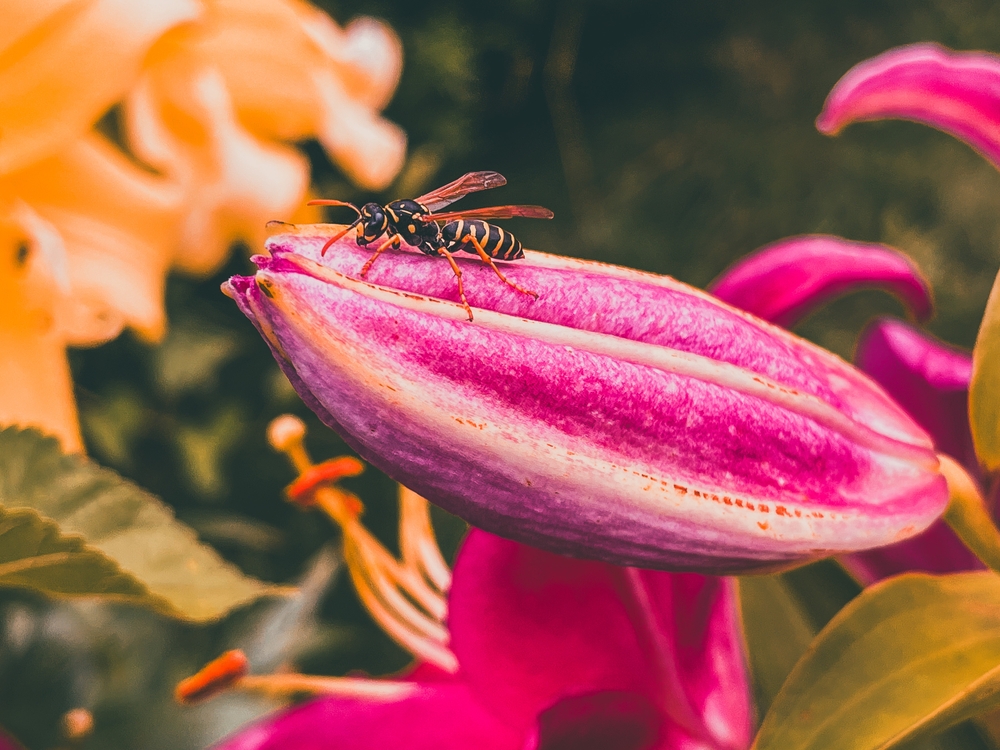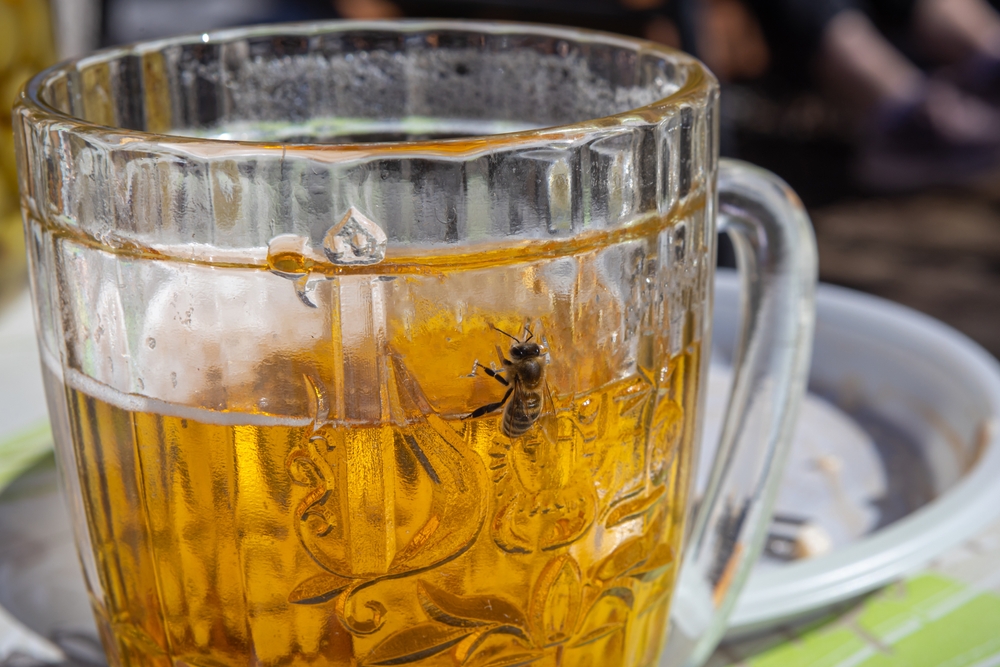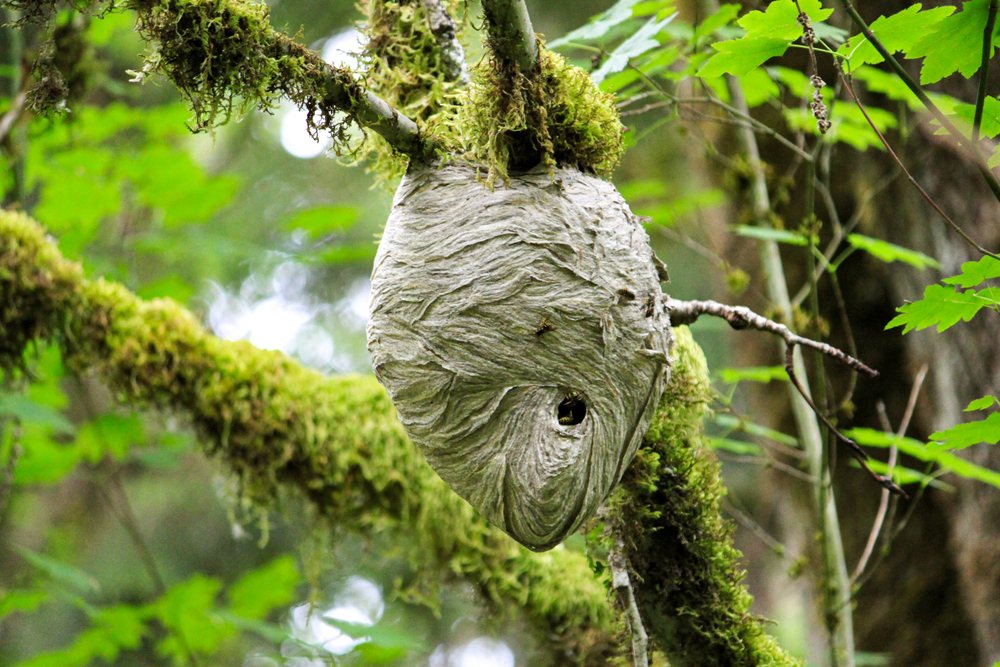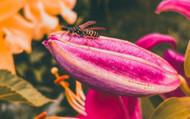Posted by Amber Williams on 10th Aug 2023
Are Wasps Essential for the Garden?

For many, nothing’s worse than a summer gathering interrupted by a few wandering wasps. On their quest for sugar (their primary food source), they tend to cause mass panic, making us wonder ‘What do wasps actually do?’.
We’ve decided to do some research for our fellow wasp-wary individuals. Are they working hard or hardly working? What benefit do they have in the garden? And can wasps really sting as many times as they want? Let’s dive in!
Why Do Wasps Swarm in Summer?
First things first, it might help to understand why wasps seem to bug you when you have something tasty. And we can only do that by delving into their main priority – their diet. Just like bees, wasps get carbohydrates from nectar – or anything sugary they can get their feelers on.
Typically, they will feed on the nectar that is secreted by greenflies or wasp larvae. But once the aphids have been eaten, and the larvae are fully grown... well, what then?
As the wasps mature in late summer, leaving the hive nectar-less, that’s when the adult wasps get desperate. The lifespan of a wasp isn’tvery long, so they will hunt down any sugar they can get - attacking us for our fizzy drinks and ice creams.
So, next time you’re held hostage for your Fanta, at least you’ll know that the wasp hadn’t much choice in the matter. If that makes you feel better?
The Accidental Pollinators
Now onto why most wasps are actually a benefit to our gardens. Of course, bees, butterflies and the like are considered pollinators. But did you know that wasps are inadvertent pollinators? On their hunt for nectar, the average wasp will hop from plant to plant, taking pollen with them. It’svery similar to bees when the pollen gets stuck on their legs.
Even though they’re not pollinating on purpose, they’re an active participant. The plants aren’tpicky about who does the job!
Apex Predators
According to the Natural History Museum, wasps are considered apex predators. They hunt down prey in your gardens, which is then chopped up and carried to their hives so they can feed their young. In fact, adult wasps don’t eat any of their prey.
The Natural History Museum stresses that “Without wasps, the world could be overrun with spiders and insects.” Their instinct to hunt down prey helps to keep your garden pest-free.
Did You Know...
Wasps' nests are quite different from bees'. A bee’s hive is made up of hexagon-shaped cells, all which are full of honey, pollen, and baby bees.
If you’ve seen a wasp’s nest, you’ll know that they have a paper-like texture and can be found anywhere that the Queen has deemed suitable (usually somewhere that’s dry and structurally sound). After the Queen has come out of hibernation, she’ll search high and low for the perfect spot to settle down.
Mixing wood with her saliva, the Queen wasp turns the mixture into a formable dough. The queen then has somewhere to lay her eggs. These first hatchers are the season’s first worker wasps. These are responsible for foraging and building, while the queen is destined to lay eggs for the rest of the season.
Why do Wasps Sting?
Bees are less hostile than wasps, or so they say. But are they really? Wasps will only sting in three circumstances: to knock out their prey, to defend their nest, and to defend themselves.
Although they won’t die like bees would when they sting, they don’t set out to sting you. Unless you pose a threat. Which they could deem you as if you start flapping your hands around or get too close to their nest.
Another difference that sets bees and wasps apart is their stinger. A bee’s stinger has a serrated edge, which gets stuck in the skin of its victim. Unfortunately, their stinger is also attached to their internal organs, so when the stinger pulls out, they die.
However, a wasp’s stinger is smooth, allowing them to sting as many times as they’d like without any ramifications.
So, there you have it. Although they’re considered one of the summer’s worst pests, they have their benefits. Without wasps, other common pests would run rampant. And, sure, they can be annoying when they come after your food or sugary snacks, but they shouldn’t harm you if you don’t pose a threat.
Do you have any other wasp facts? Let us know on our social media: @jparkersbulbs.

